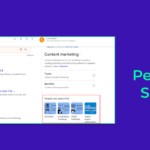Table Of Content
One of YOUR biggest goals for this year should be to build a strong and diversified backlink profile.
But why?
Backlinks are still a ranking factor. Here is the reality: Pages ranked 1-10 receive 3.8 times more backlinks than pages between 2-10.
Let’s explain…
A strong backlink profile signals to search engines that your website is reputable and trustworthy.
High-quality backlinks from authoritative websites improve your rankings and drive organic traffic to your site.
Most importantly, quality links increase your DA, DR, traffic, and rankings.
So, a robust backlink profile establishes your website as an authority in your industry.
There is no doubt about it.
This, in turn, improves your authority in Google’s eyes.
So, a quality backlink profile indicates the site is worth linking to.
Now the question is – what is a backlink profile? What is the importance of it?
This guide will give you all the answers you need.
Table of contents
- What is a backlink profile?
- Importance Of SEO Backlink Profile In Link Building.
- Good Backlink Profile vs Bad Backlink Profile.
- How do we get rid of over-optimized anchor text?
- Why and how to analyze a backlink profile?
So, are you ready to learn insightful strategies? Let’s start.
What Is A Backlink Profile?
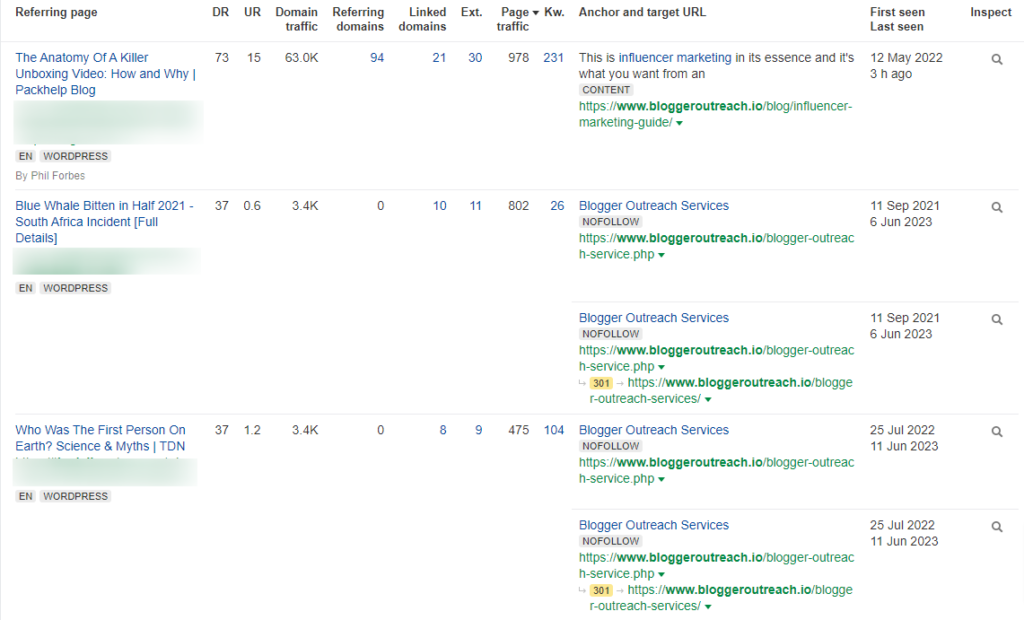
Okay, let’s start with the backlink profile definition.
Backlinks are the inbound links pointed to your site from others.
📌A backlink profile is an accumulation of all the backlinks linking to your site.
This is a quantitative as well as a qualitative factor. Put simply, quality and quantity both matter in backlinks.
Now, if you see through the eyes of Google…
The search giant will evaluate whether the backlink profile comes with enough authority or not.
After analyzing, if you find your backlink to be not up to the mark – don’t get upset.
There are strategies to improve your backlink profile.
Importance Of SEO Backlink Profile In Link Building
Imagine each backlink as a highway. More quality highways (backlinks) leading to your site mean easier access for search engines.
But not all highways are equal; good ones come from respected sites related to your content.
✅A diverse backlink profile is like having friends from different circles. It indicates various online communities value your site. Avoid bad backlinks though; they’re like unreliable friends who can harm your reputation.
Quality over quantity matters. A bunch of irrelevant backlinks can backfire. Search engines prefer a few solid, relevant ones. So, choose wisely where you get linked from.
Clearly, you know the difference between a good and bad backlink profile. So, here you go…
Factors Affecting Backlink Profile
What separates a quality backlink profile from a toxic profile? Certainly, there are some deciding factors you need to take into account here. Knowing these will help you understand the difference between the same.
Absolutely, let’s break it down.
| Aspect | Good Backlink Profile | Toxic Backlink Profile |
| Source Quality | Trusted, reputable websites related to your niche. | Sketchy, irrelevant sites. |
| Link Nature | Natural links are earned through content. | Paid or spammy links. |
| Diversity | Various sources and types of sites. | Mostly from one source or type. |
| Anchor Text | Relevant and varied keywords. | Over-optimized or exact-match keywords. |
| Context | Links within relevant, useful content. | Links in unrelated or low-quality content. |
| User Experience | Adds value to users, and aligns with content. | Confuses users to feel out of place. |
| Rate of Growth | Gradual and consistent. | Sudden spikes or drops. |
| Social Signals | Shares and mentions on social media. | Lack of social presence or engagement. |
| Penalty Risk | Low risk of search engine penalties. | High risk of search engine penalties. |
In the above table, we have already talked about anchor text. However, this is one of those common mistakes we have seen of late.
❌Refrain From Over-Optimized Anchor Text

Many clients come with the request to emphasize exact match anchor text again and again.
Over-optimized anchor text means using the same keyword or phrase too much in your backlinks.
Imagine you’re talking to a friend, but they keep saying the same word over and over – it sounds unnatural, right? That’s how search engines see over-optimized anchor text.
It used to work, but search engines got smarter. They now want links to look natural and helpful. Overusing keywords can raise red flags and lead to penalties.
Instead, use a mix of anchor text like your brand name, variations of keywords, and even plain URLs. This makes your backlink profile balanced and user-friendly.
Let’s Break Down These Anchor Text Types:
✅Naked URLs: These are plain web addresses without any extra text. To explain with, “https://www.xyz.com” or just “xyz.com”.
✅Branded Texts: This includes your brand’s name or variations of it. For instance, “Nike” or “Nike shoes”.
✅Keyword Anchors: These use specific keywords related to your content. For example: if you’re about gardening, “best gardening tips” could be a keyword anchor.
Using these types smartly makes your backlink profile look natural and helpful to both users and search engines.
Remember, the key is to keep things natural and diverse. Like seasoning in a recipe – a little is good, but too much ruins the dish.
Why Analyze A Backlink Profile?

Analyzing your backlinks lets you know your reality. So, here are the reasons why analyzing your backlink profile is so important.
- Quality Check: You want to know if your links are from trustworthy sites. Not all links are equal.
- Penalty Prevention: Checking for spammy or low-quality links helps you avoid search engine penalties.
- Strategy Adjustment: By seeing what’s working, you can adjust your link-building plan for better results.
- Competitor Insights: Analyzing others’ profiles helps you learn from their successes and mistakes.
- Overall Health: It’s like a check-up for your site’s popularity and reputation.
- Check If Further Link-Building Planning Is Needed: This helps you decide where to focus on a new link-building campaign or not.
Remember, a healthy backlink profile is like a solid foundation for your website’s growth. It’s all about making sure you’re on the right track.
How To Analyze A Backlink Profile?
At this point, you understand why you need to analyze a backlink profile. Now, it’s time to teach you how to analyze your backlink profile.
1. Check Referring Domains

Start by using tools like Ahrefs or Moz to gather data on the websites linking to yours. This reveals your referring domains. Analyze the quality and relevance of these domains – focus on authoritative and trustworthy sites rather than low-quality ones.
2. Number Of Backlinks
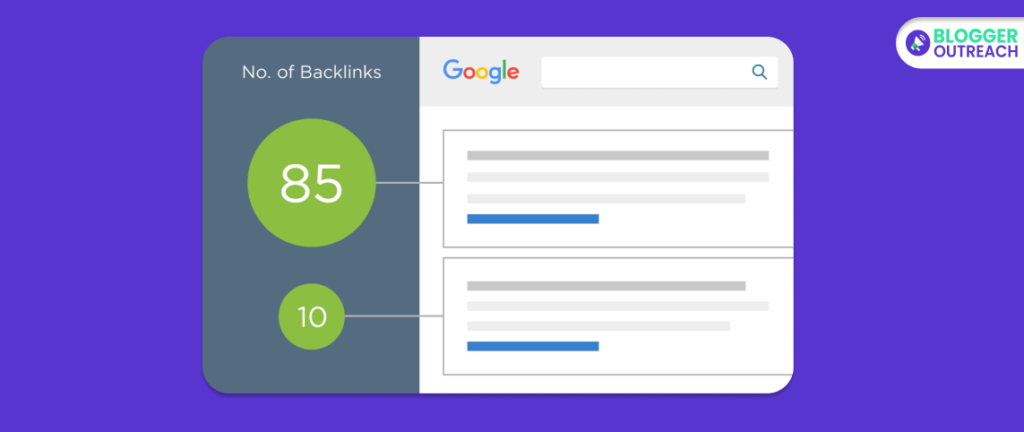
Count the total number of backlinks you’ve acquired. More isn’t always better; quality matters, too. A few strong, relevant backlinks can outweigh many weak ones. So, quality over quantity is key.
3. Comparison With Competitors
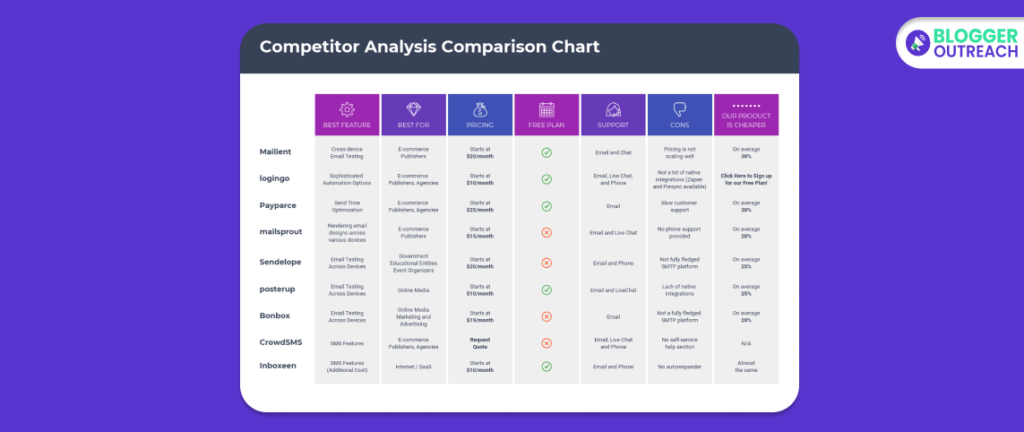
Research your competitors’ backlink profiles using the same tools. This offers insights into their strategies. Identify where they’re getting strong links from, which could inspire your approach.
4. Assess Penalty Risk

Scrutinize your backlinks for signs of spam or black hat practices. Low-quality, irrelevant, or manipulative links can trigger penalties from search engines. Essentially, disavow such harmful links to mitigate risks.
5. Observe Growth And Sudden Spikes
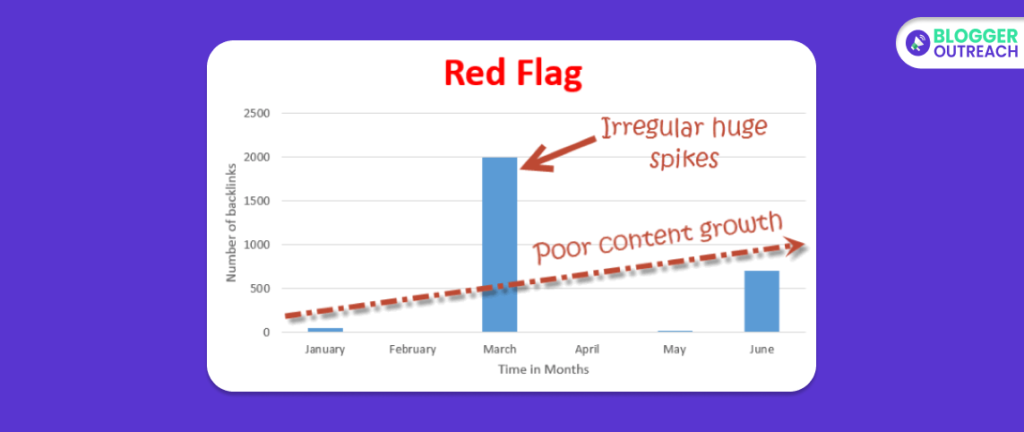
Monitor your backlink growth over time. Gradual growth is usually more natural and safe than sudden spikes. Rapid increases might indicate questionable tactics. Most importantly, this could raise red flags with search engines.
6. Evaluate Results And Planning

Analyze how your backlinks are influencing your rankings and organic traffic. If you’re seeing positive results, your strategies are working. If not, adjust your tactics and try different approaches.
Final Note: Best Way To Improve Your Backlink Profile
Remember, building a strong backlink profile takes time. Be patient and focus on getting links from reputable sources.
Do you want to know the best strategy to boost your backlink profile? Here guest posting comes in.
Guest posting gives you sustainable results over a period of time. The results are long-lasting and sustainable.
Because guest posting revolves around quality content.
This helps your website rise in the popularity contest of search engine rankings.
And if you are searching for experts in guest posting – who else than BloggerOutreach?
We are the industry leaders when it comes to building high quality niche backlinks.
Get high quality niche backlinks that come with proven results.
Read Also:




